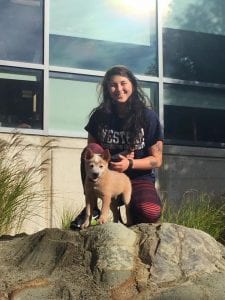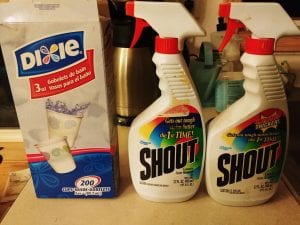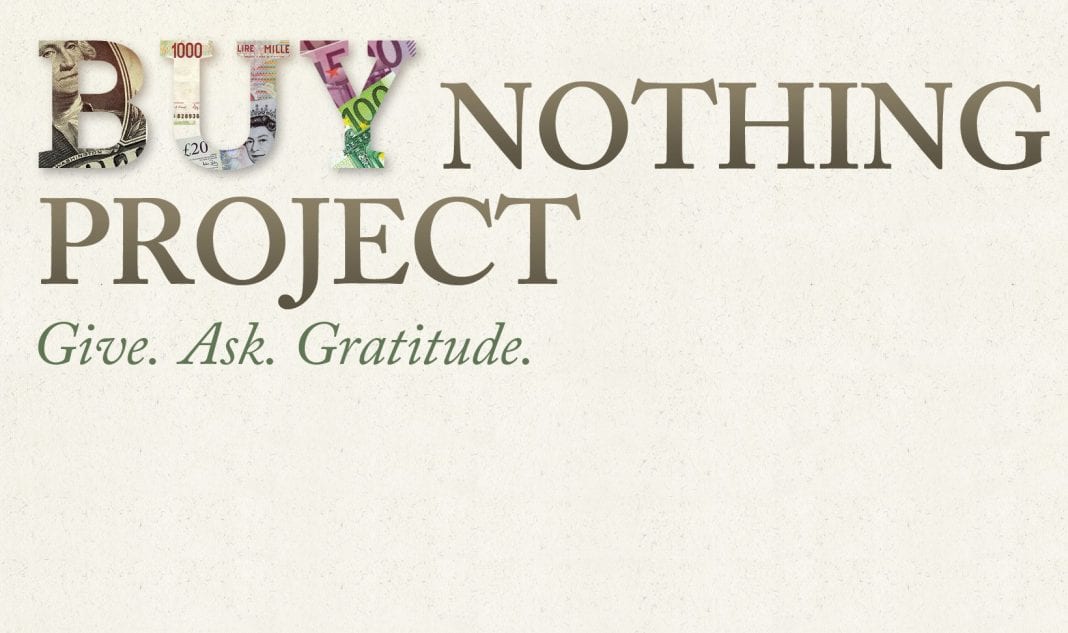Thanks to the pandemic, this year’s spring cleaning looked a little different. The garages and storage sheds of this county are bursting with stuff people haven’t been able to donate. Now in Phase 2, places like Goodwill and Value Village are taking donations—with some restrictions.
Members of the Buy Nothing Project, though, enjoy a more personal experience of exchange. The online group’s mission statement reads: “We offer people a way to give and receive, share, lend, and express gratitude through a worldwide network of hyper-local gift economies in which the true wealth is the web of connections formed between people who are real-life neighbors.”
Buy Nothing groups exist in almost every metropolitan region in the U.S. now, and in many rural counties, as well. The Buy Nothing Project started in 2013, with the goal of weakening the grip of consumerism and getting neighbors back in touch with each other.

Buy Nothing Bellingham grew so big that it then split into several groups by neighborhood clusters. KiAnna Hoppe was active in the larger group and decided to serve as an admin for her neighborhood split-out group of Meridian/Irongate/Cordata/King Mountain.
“I meet a lot of cool people this way,” she says. “The community really comes together for each other.”
The Buy Nothing Project is managed on Facebook. Members can make posts of three types: gifts, asks, and gratitude posts.
Hoppe’s branch of the group waited longer than others to resume activity because it has many immunocompromised members, and many members who lost jobs or were out of work during Phase 1. The group admins wanted gifting to be available for everyone, and didn’t want people who were out of work to be excluded from participating.
Gifts
Anything can be offered as a gift, including services. Say you’re a retired painter and you miss the work—you can offer to help people paint their houses. Do you love to knit and want more friends to knit with? Offer teaching sessions.

The vast majority of gift posts are things people want to get rid of. The old saying “one man’s trash is another man’s treasure” gets proven here. Even half-filled containers of cleaning products are eagerly snapped up by neighbors who can use them.
Givers make their own rules about who will receive an item. Typically, it’s first come, first served; but for valuable items, people often ask commenters to pick a number between 1 and 100, and the person with the closest guess gets the item. If an item is of high sentimental value and the giver wants to be sure the recipient will respect the gift, they can have people note why they want it and how they’ll use it, ultimately picking the story that feels best to them.

Gift posts make donation more personal by allowing the donor and recipient to meet. People in greater need find themselves contributing items they can’t use too, resulting in an equal exchange rather than charity. “Waves of treasures have flowed over and through me,” says one of the group’s most generous members, Amy Coughlin. “Our needs have been met and dear connections created. When I’ve struggled or had car problems, this community was there to lift me up and help keep me afloat—like a cork bobbing through the storm.”
Member Michelle Flynn once babysat for three young children who ended up staying with her longer than planned. Her Buy Nothing group brought her all kinds of baby and toddler things, including a bassinet she and her husband refinished and gifted again. The woman they gifted it to wrote her baby’s name on the bottom and everyone since then has kept the tradition when they pass it on. The bassinet was recently seen posted on a Tacoma group, now with over 30 signatures on it!
Asks
Members are encouraged to ask for things they need. Common asks include exercise or home physical therapy equipment for people recovering from injuries. People with disabilities or who live alone often ask for help with big chores like yard care and furniture moving. One member lost a job recently and posted an Ask for kindnesses, whether it was good wishes or material assistance. When a member has contributed to the group, other members are anxious to help when needed.
Shannon Webb joined shortly after she got divorced and moved into a small apartment with her son and their dog. Her Buy Nothing group helped her get back on her feet with all kinds of household items. It started with asking for a tea kettle. She’s participated in her group for a while now, and says, “I have gifted many items but I have received way more than just “stuff” in our group—I have made friends and felt like we have a community to call on whenever we need something.”
Gratitude Posts
Gratitude posts are simply for spreading joy in the community. If someone had a serious illness and received a lot of home care from the group, for example, they might make a gratitude post for everyone’s role in their recovery. Gratitude posts can be for any reason and don’t have to be related to the group. They’re meant to be uplifting and set a positive tone.
Buy Nothing Bellingham was shut down during Phase 1, but has resumed its activities with a few changes. Members must sanitize all gift items, and only items that can be moved by one person may be exchanged now. This is to minimize contact between members and keep people from going into each other’s homes to move large items. Porch pickup is encouraged.
Getting involved with the Buy Nothing group can help you empty your garage so your car fits inside again, but you’ll get so much more than just a place to offload your things. You’ll learn who your neighbors are, you’ll share skills and make new friends. In an increasingly impersonal world, it’s a chance to be a real part of your community.
To get started, go to the Buy Nothing Project web site at https://buynothingproject.org/ where they’ll get you into the right group for your area and you can start making your own great stories.











































